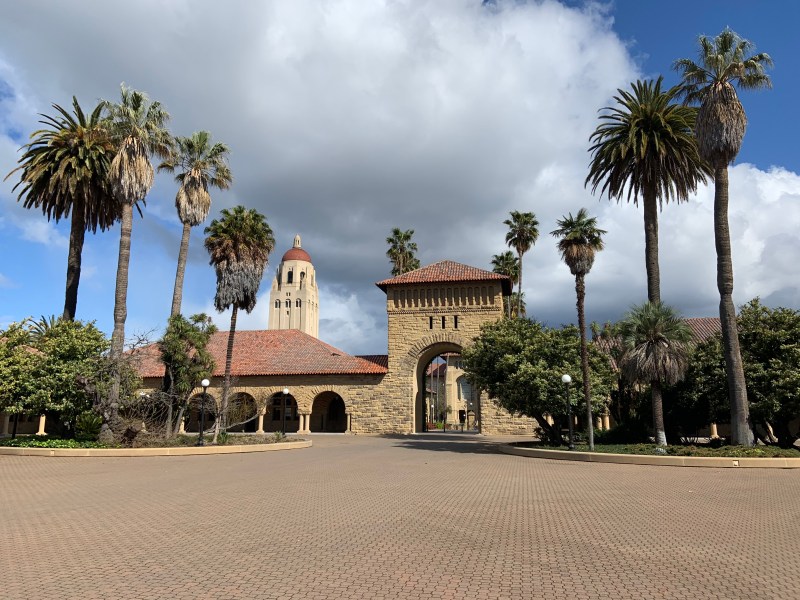Some amount of time, unweighted and hollow, has passed. It is the fourth day of quarantine. Across the room, a window opening to a neighborhood park of almost nothing: cherry blossom trees bending from the March wind, a stray cat lapping the milky, clouded air. The work of observing silence.
I had forgotten what grief felt like, how it makes harrowingly clear the absence of the thing that has been lost. I had forgotten how such sadness sanctifies the romance of the past, pierces every pure image in the present and muddles a future we thought had been set. And here, attempting to reflect on what has occurred these past few weeks, I encounter this type of grief once more.
Time has become strange. Throughout my years at Stanford, time was designated as a precious commodity, reviewing friends’ schedules to find an hour to meet for lunch, tightly fitting in 30-minute meetings with advisors and clubs, blocking out evenings to go out to formals or stay in and cram papers in CoHo. Even then, knowing that it was nearly impossible to have enough of it, I always expected to have more time with Stanford. If not enough time, at least the comfort of saying that I was satisfied with the time I had left. Ironically, all I have now is time, the seconds dully passing so that dawn and dusk bleed into each other with no significance.
With the seemingly infinite number of hours I have in the day, I continue to dwell on this, wishing for a more melodramatic emotion than the irritating mundanity, the brutal numbness. I wait for the five stages of grief and they never come. My body fails me, lacking the capability to be honest with its sorrow as it faces loss, its unforgiving anger towards the abrupt end to this chapter of life, its envy of those who either have had or will have the chance to walk and receive their degree. There are brief flares of feeling that arrive, but not consistently. Not enough. A passiveness discolors my eye so much so that I no longer have the means to define.
Perhaps I should know better than to expect a reaction out of myself. Perhaps I should have learned from the hollowness of March 13, the last Friday before most of us had to leave campus, as I found myself with many other seniors in front of Memorial Church. Towards the end of the night, I saw a friend who had been in quarantine. We were forced to keep the rules of social distancing, six-feet apart. I witnessed that, even with the small separation, their portrait was fuzzy. The wisps of stranded lashes fallen on their face, their off-beat blinking, the specks of dust clinging to their shirt I thought would have flicked off, these quiet forms of intimacy: Where had they gone? That night, all I could see was absence. Afraid and already lonely, we were forced to come to terms with the fact that our bodies did nothing for the emptiness we were trying to fill, that all we wanted was to find resolve for a feeling that was merely a brutal consequence of the state of our world.
How could I ask myself to expect grief when its very foundation is based on being almost always unexpected? How could we have known, when we were geared to await a spring that, if it was not as brilliant as people say, at least existed?
There is such a specific and strange joy associated with the last quarter of our undergraduate career. I have seen it in previous years and imagined it for our class throughout my time at Stanford: the silliness of sloshed beer on dewy grass and Hawaiian shirts, the glow of sundown at Lake Lag as we dance barefoot, the scramble to finish theses and leftover WAYS requirements, midnight escapades to TAP and spontaneous jumps into ice-cold fountains. It is so incredibly — and I don’t know how else to phrase it — college.
As Stanford students, we worked for years to have these three months of unapologetic and reckless fun, a period we could enjoy for ourselves because, for once, we knew we deserved it. Stanford was not only a place of absolute warmth but also evidence of struggle and resilience. We craved closure. We sought rest. We were ravenous for the playful and sometimes idiotically goofy freedom of being a 20-something-year-old.
We no longer have this time, and yes, it is so unfair. It is so unfair, and it is so sad. Amidst this “tumultuous time,” words I have recently used too often for my own liking, I have come to rely on facts. We no longer have our senior spring. I don’t know when or if I will see us as a class, together, ever again.
I miss Stanford rawly and dearly. And you all: I am so proud of what we have accomplished, so incredibly excited for the lives you will lead. What a beautiful song it has been to grow with each one of you. What a gift it has been.
Contact Sun Paik at spaik97 ‘at’ stanford.edu.
